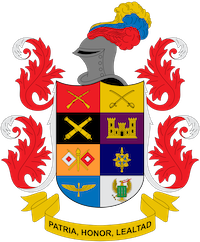Territory, War and Population in Ancient Political Thought of Rome, Greece and India. A Semiotic recension of War
Abstract
The article makes a semiotic review of the political concepts of territory, war and population, in the context of the ancient thought of Rome, Greece and India. Semiotic recension is understood as a method of textual criticism of language problems that together, and each in turn, make contributions to the great problem of a specific field of research, through the history of a word and a concept. The results of the research led to the discovery of three Indo-European political concepts of great relevance for the understanding of war from a semiotic point of view, each one with a variety of meanings with traps, although coherent with the social-historical reality of its political thought: the legal concept of jus terrendi ('right to terrorize' or 'right to banish'), which shapes the idea of territory in Justinian's Digest; the Greek concept of stasis ('civil war' or 'political stability'), discovered by Thucydides in the third book of the History of the Peloponnesian War; and the Hindu concept of arthashastra ('the science of territory' or 'the science of the prosperity of the state and its inhabitants'), in the context of a monumental work: Kautilya's Arthashastra, a political treatise on the wealth and welfare of the population. It is concluded that in the West war has been conceived as territorial control, whereas in the East war has been seen as population control.
Downloads
References
Adrados, F. R., Bernabé, A. y Mendoza, J. (1995). Manual de lingüística indoeuropea l. Prólogo, introducción y fonética. Madrid: Ediciones Clásicas.
Ardant du Picq, Ch. J. (1988[1880]). Estudios sobre el combate. Madrid: Ministerio de Defensa.
Aristóteles. (1989). Politeia (La política). Bogotá: Instituto Caro y Cuervo.
Badie, B. (1995). La fin de territoires. Essai sur le désordre internationale et sur l'utilité social du respect. París: Fayard.
Benveniste, É. (1983). Vocabulario de las instituciones indoeuropeas. l. Economía, parentesco, sociedad. Il. Poder, derecho, religión. Madrid: Taurus Ediciones.
Benveniste, É. (1997). Problemas de lingüística general l. Madrid: Siglo XXI Editores.
Benveniste, É. (1997). Problemas de lingüística general II. Madrid: Siglo XXI Editores.
Boussaguet, L., Jacquot, S. y Ravinet, P. (2009). Diccionario de políticas públicas. Bogotá: Universidad Externado de Colombia.
Corominas, J. (1987). Breve diccionario etimológico de la lengua castellana. Madrid: Gredos.
Dambuyant, M. (1970). Un État a 'haut commendement économique': l'lnde de Kautilya. La Pensée, (151).
De la Peña, E. (2009). Kautilya o el Estado como mandala. México: Dirección General de Publicaciones del Consejo Nacional para la Cultura y las Artes.
Digesto. (1997). Sobre el significado de las palabras. Digesto (50.16). México: Universidad Nacional Autónoma de México.
Digesto. (1997). The digest of Justinian. Filadelfia: University of Pennsylvania Press.
Dumézil, G. (1970). Los dioses de los indoeuropeos. Barcelona: Seix Barral.
Dumézil, G. (2008). El destino del guerrero. Aspectos míticos de la función guerrera de los indoeuropeos. Madrid: Siglo XXI.
Durant, W. (2004). Kautilya: un antiguo Maquiavelo. Derecho del Estado, (17). 61-69.
Ernout, A. y Meillet, A. (1967 (1932]). Dictionnaire etimologique de la tangue latine. Paris.
García de Diego, V. (1985). Diccionario etimológico español e hispánico. Madrid: Espasa-Calpe.
Gómez de Silva, G. (2006). Breve diccionario etimológico de la lengua española. México: El Colegio de México/Fondo de Cultura Económica.
Kautilya Canakya (1960 [1915]). Kautilya's Arthashastra. Mysore: Mysore Print. and Pub. House.
Kautilya Canakya (1969). The Kautilyan Arthashastra. Bombay: University of Bombay.
Kautilya Canakya (1971). L'Arthashastra, le traité politique de l'lnde ancienne, extraits choisis et publiés avecune introduction par Marinette Dambuyant. París: Marcel Riviere et Cie.
Kautilya Canakya (1990). The Arthashastra: New Dehli: Penguin Books.
Kautilya Canakya (2008). Arthashastra, la ciencia política de la adquisición y el mantenimiento de la tierra. México: Universidad Autónoma del Estado de México, Facultad de Ciencias Políticas y Administración Pública/Miguel Ángel Porrúa.
Kourtessi-Philippakis, G. (2011). La notion de territoire: définitions et approches. En G. Kourtessi-Philippakis, R. Treuil (Dir.), Archeologie du territoire, de l'Égée au Sahara. París: Publications de la Sorbonne.
Lakatos, l. (1983). La metodología de los programas de investigación científica. Madrid: Alianza Universidad.
Lorenz, K. (2005[1963]). Sobre la agresión: el pretendido mal. Buenos Aires: Siglo XXI Editores.
Maquiavelo, N. (1955). El Príncipe. Madrid: Revista de Occidente.
Monier-Williams, M. (2001). A Sanskrit-English Dictionary. Etymologically and philologically arranged with special reference to cognate indo-european languages. New Delhi: Asian Educational Services.
Oshima, H. (2007). La vía del samurái: (compilación del Libro de los cinco anillos de Miyamoto Musashi (pp. 35-157), y Hagakure de Yamamoto Tsunetomo (pp. 159-420). Madrid: La Esfera de los Libros.
Oxford. (1968). Oxford Latin Dictionary. Oxford: The Clarendon Press.
Ramaswamy, T. N. [ed.] (1994). Essencials of lndian Statecraft. Kautilya's Arthashastra for Contemporary Readers. New Delhi: Mushiram Monoharlal Publishers.
Roberts, E. y Pastor, B. (1996). Diccionario etimológico indoeuropeo de la lengua española. Madrid: Alianza Editorial.
Roby, H.J. (1881). An elementary latin grammar. Cambridge: MacMillan & Co.
Sancho, L. (1994). STASIS y KRASIS. En Tucídides (8.97. 1-2), Habis 25, 41-69.
Schmidt, C. (2009). Teología política. Madrid: Trotta.
Segura Munguía, S. (2006). Diccionario por raíces del latín y de las voces derivadas. Bilbao: Universidad de Deusto.
Suárez Pineda, J. A. (2014). Biografía de las palabras castrenses. Investigaciones filológicas sobre cultura militar. Bogotá: Escuela Militar de Cadetes "General José María Córdova".
Sunzi. (2006). Arte de la guerra de Sunzi. Madrid: La Esfera de los Libros.
Tucídides (2010). Historia de la guerra del Peloponeso. Madrid: Cátedra.
Universidad Externado de Colombia. (2004). Revista Derecho del Estado, 17 K (edición especial dedicada a Kautilya). Bogotá: Departamento de Publicaciones.
Watkins, C. (1993). lndo-European and the lndo-Europeans. Apéndice del diccionario monolingüe The American Heritage College Dictionary (newest definitions - over 200,000 most photographs and illustrations - over 2,500 best usage guidance - over 400 notes; third edition; pp. 1573-1625).
Weber, M. (1959). La política como vocación. Revista de Ciencais Políticas y Sociales, 5(16-17).













